Better Thinking: A Q&A with Nesh Nikolic
Podcasting is the tech version of a modern day gold-rush. In June 2018 it was estimated that there was around 550,000 Podcasts on iTunes, as of April 2019 that number has increased to 700,000, with an estimated 29 million existing episodes. It is also estimated that 33% of Australians have listened to a podcast in the last month (the 4th highest percentage of any country). For more data and statistics on Podcasts you can look here.
Nesh Nikolic is a Clinical Psychologist who has over 15,000 hours of experience in 1 on 1 therapy, as well as an assortment of other qualifications. He has recently taken the plunge into the podcasting world. Having uploaded multiple videos to his Youtube channel on various topics related to mental health, in March of this year Nesh began his podcast titled ‘Better Thinking’.
The first episode of the podcast is a 5 minute introduction to the idea of the podcast, explaining the rationale and what Nesh hopes to achieve with the podcast. The following episodes have followed the proposed structure, with conversational interviews with experts in fields relating to mental well-being.
NowUC spoke to Nesh about the podcast, why he started it, where he wants it to go and what advice he would give to other prospective podcasters:
Q: What was the final kicker to make you decide to start the podcast?
A: I look at the data on my website, to see how many people are visiting, what they’re doing and so on. We have some tip sheets on the website that are for people to read and use and I recognise that all day every day – not huge numbers, but reasonable numbers – people from all around the world were visiting the website and they were looking at the tip sheets and downloading them. I was shocked by it, I didn’t realise people would go ahead and do something like that, and I thought isn’t this incredible that the consumption of useful information just happens just like that, and I thought how can we make this more? How can we find a better medium?
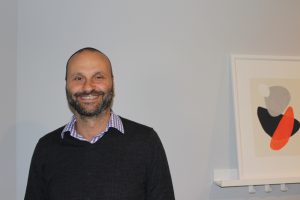
That kind of kicked it off, and I say that because I think we are at a stage in history where we are all trading time, and podcasts have gone bonkers because people trading time all the time, therefore so many people are opting to go podcasts over let’s say YouTube, because you need to visually be there, but when you’re walking from one place to another, when you’re driving from one place to another, whenever there’s a lull you can consume a podcast. Podcasts are here to stay, for at least a while, so I thought that’s the medium. We can talk about cool stuff and it spreads to the world much better than what I’m doing with the website which has kind of happened accidentally, and I thought this is a social thing I can just go out and do.
Q: What were the financial costs of setting it up?
The financial cost is immense. The equipment is probably the least costly, and that goes into the thousands, many thousands; getting good mixers, good mics, software, etc. The biggest cost is in who runs it, so I have a dedicated employee (my brother), but I pay him full time to do this, so there’s a whole wage that it costs. Obviously, my time as well, as when I’m not consulting, there’s a cost there as well, so there’s huge costs attached.
Q: How often is your brother working?
5 days a week. Full time. Not just for the podcast, he has other functions as well, but there’s a decent volume there [on the podcast], and we’ll use external people as well for production.
Q: How much oversight do you have over the editing/production? Do you give podcasts a final listen before uploading?
Naught. Zero. The idea of the podcast is for it to be raw, so that whatever we talk about we haven’t edited anyone out. We’ve never gone out and changed the conversation, the conversation stands as it is. Because that’s what it is; it’s just a chat between two people. I get to kind of pick their brain, and so it is long form. They’re usually about an hour (give or take). But there’s no editing from that part.
Q: How did you determine the format? That conversational, just a chat between two people, rather than the interview style?
I’m a big fan of Joe Rogan’s podcast, so I just copied him. Let’s not go out and try reinventing the wheel, right? He’s obviously got a good format, he’s a great interviewer; he knows his stuff as well, he’s very well researched, and he’s got a team and that helps, he’s a comedian and that helps, and a talker you know and he’s got a personality, he does all long form stuff like so his podcasts are like 3 hours, very few are less than three hours. I just kind of looked at that and went; that’s he’s doing, and I listen to him and I devour it, I love it so that’s enough evidence for me.
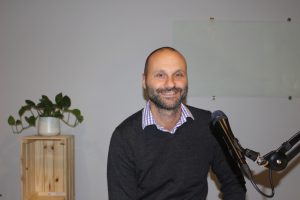
Q: How are the numbers for your podcast looking so far on Spotify and iTunes?
The YouTube stuff is poor [400 views total for the podcasts]. We’ve had 1300 downloads for the first month (this has only been going on for about a month. I think is good for a start, I’m surprised by those numbers, my expectations have been exceeded. And I have no experience in any of this stuff I think the challenge has all been distribution, as like any product it’s all about marketing.
Q: What strategies have you used in that marketing the podcast?
This is probably the hardest part, at least in my eyes. Trying to figure out how to do it. I’ve got lots and lots and lots of LinkedIn connections, so predominantly I’ve used LinkedIn. I’ve done Facebook, not particularly great there however. We’ve done Instagram, which has had zero sort of traction whatsoever because we don’t know how to use it. Twitter as well. We’ve done some other bits and bobs of trying to let people know. We’ve done some mailings, to some local GP’s just letting them know for particular podcasts. Probably the social media is basically our strategy.
Q: What would you say has been the most enjoyable/entertaining podcast episode to record so far?
I had a great time with Bruce Stevens. He’s a forensic psychologist here in Canberra. He’s larger than life, he’s a funny guy. He was my lecturer, so I’m very fond of him, and he became my supervisor, so I looked up to him. I think he’s great in what he’s achieved and done look I don’t know how old he is but he’s on the latter end and he still has more energy than you and I, he’s a go go go guy, he’s funny so I enjoyed that. That was interesting, and I actually enjoyed our conversation with your Antonio Di Dio [ACT AMA President], just cause he turned the tables and started interviewing me and that hadn’t happened before so that was quite enjoyable. Plus, we could have a bit of a laugh.
Q: How do you tend to go about obtaining guest? Are they close colleagues within your field or do you go out and seek people out?
Probably both because we don’t have anyone knocking on our door saying, “oh I’ve heard about your podcast I’d like to be in an episode.” Because were in the promotional phase, trying to get it off the ground, we’ve reached out to everybody. Obviously, I’ve started with my closer network and gone broader. We find that some people respond, some people don’t, I’ve tried to pick some topics, so for example where we’ve gone closer, we’ve had two of our psychologist’s here as part of the podcast, so that makes it easier. I’ve reached out to Dr Di Dio, Minister [Shane] Rattenbury, both of them being kind enough to provide their time. We’ve had a couple lawyers that we’ve worked with so that’ve been our core. So in all of that we’ve got like 6 people and then the others we’ve reached out to via email. Some I’ve known; others I’ve trained with in areas like relationship counselling. I reach out to them because I know they’re good. And then we’ve got some others that we just thought you’re really cool, you got some awesome things to say.
Q: Now that you’ve gotten into it and there seems no sign of slowing down, what are your plans for the growth and future of the podcast?
I’ve gone in with kind of a two-year plan in my head. If we’re going do this were going to give it a good crack. It’s kind of like ‘let’s throw two years of intensive energy, time, effort and wait for the long tail and see what happens.’ I don’t know what our plan is for it, my hopes would be that people get a lot of value out of it, we get a lot of listeners, we get to kind of air quotes “change the world” or rather change, contribute, add value, spread some great messages that people will reduce their own suffering through, that warms my heart, a lot. We want to give the mic to people to be able to do that. That was one of my dreams, that I can partake in pro-social contribution to the world, and the bigger the scale the more my heart is warmed. I love my work, so this is an extension of that, that goes further. Obviously, I can’t do one-on-one therapy with everyone but we can provide good information. So, I’m hoping it goes that way. If I could become idealist, I’d love to have enough people on there that there’s sponsorship opportunities, people contact and say you’ve got such a big audience that we’ll pay for adds, and that pays for staff – I can’t see that happening as there’s the smallest handful of podcasts that will ever get to that level. So to actually be successful in this, the odds are tiny, but that doesn’t mean you don’t give it a crack, that doesn’t mean that it doesn’t contribute and give value, so I don’t know what the goal is, but I would love for it to live. That’s going to be a hard ask.
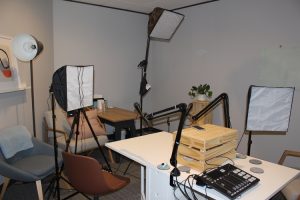
Q: What tips would you have for people starting out? Based off the difficulties and your experiences so far, what would you say to yourself before starting this podcast?
I would say make sure you’ve got a good team, cause this podcast only lives because I’ve got my brother here, without it I wouldn’t be able to juggle it. The time and effort, the cost, the resources of being able to get it off the ground is immense. To do it, the way I look at it is; if you’re going to give a podcast a real shot, you want it to live, to get somewhere, you’re going to need to put a lot behind it, it can’t be a half-baked, it can’t be kind of a half pregnant, you’re either pregnant or you’re not, and were pregnant. I think you need to make sure you’ve got a good team behind you, and I would say listen to lots of other podcasts. So, you can find your own flavour or what resonates for you, so at least its authentic to what you would like it to be.
If you want to find out more about Nesh, his website can be fond here, and his youtube channel here; where you can find videos with explanations of psychological concepts in addition to his podcast.
If you require support for mental well-being, you can call:
Lifeline: 13 11 14
The Crisis Assessment and Treatment Team (CATT): 1800 629 354
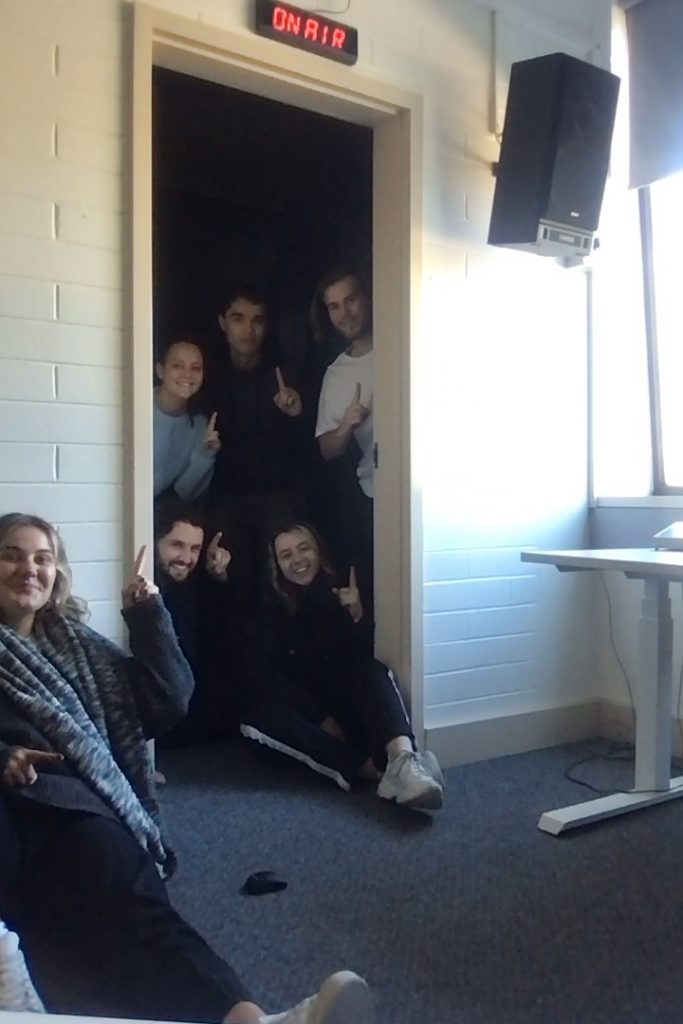
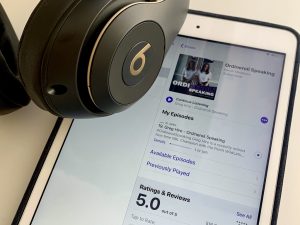

Be the first to comment!